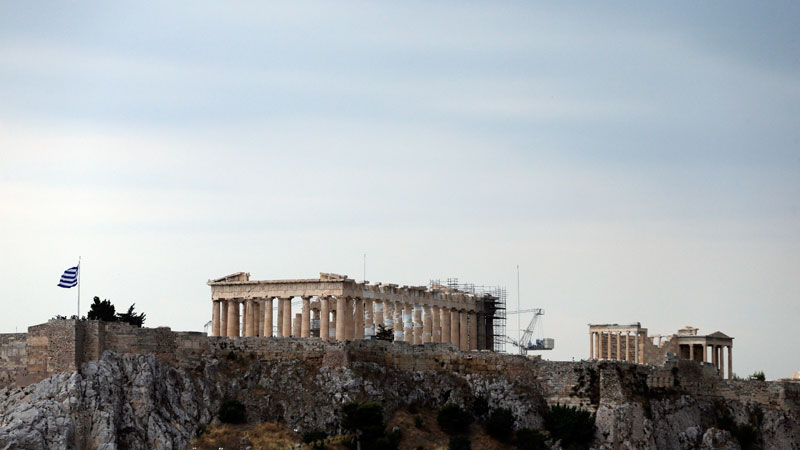Greece crisis poses little threat to PH

Clouds are seen over the ancient Acropolis hill in Athens, Tuesday, June 30, 2015. Greece is set to become the first developed nation to not pay its debts to the International Monetary Fund on time, as the country sinks deeper into a financial emergency that has forced it put a nationwide lockdown on money withdrawals. Greece’s debt woes pose little threat to the stability of the Asia-Pacific economies such as the Philippines, which has held its own against worse crises in recent years. (AP Photo/Thanassis Stavrakis)
GREECE’S debt woes pose little threat to the stability of the Asia-Pacific economies such as the Philippines, which has held its own against worse crises in recent years.
Policymakers should focus more on slowing production and anemic government spending that have stunted growth in past months.
“Direct links between Emerging Asia and Greece are very limited,” think-tank Capital Economics said in a report on the Asia-Pacific region on Tuesday.
Exports to Greece accounted for only a tiny proportion of the region’s gross domestic product (GDP), while banking sector ties were negligible, the report pointed out.
What matters more from an Asian perspective is not so much the crisis in Greece itself, but whether a “Grexit“ causes significant disruption in the wider eurozone economy.
Some of Asia’s most trade-dependent economies, notably Hong Kong, Singapore and Vietnam, would be hit hard if exports to the eurozone fell sharply. The impact of a “Grexit” on global financial markets could also cause problems in the region.
“The Asian economies that would be most vulnerable to a sharp fall in global risk appetite would be those with large current account deficits (particularly Indonesia) or high levels of short-term external debt (such as Malaysia),” the report said.
For the Philippines, the immediate concern should be finding ways to prop up slowing economic growth.
The economy slowed sharply in the first quarter of 2015, with GDP growth coming in at a three-year low of just 5.2 percent. “The most recent data suggest the second quarter might not be much better,” the firm said.
Exports fell by 4.1 percent in April, the third decline in four months. Meanwhile, industrial production growth fell in April and remittance growth slowed in April, “although it has been very volatile in recent months.”
ING Bank, in a separate report, said tightness in the country’s power supply might prove to be another constraint to growth. “Growth risk seems to be coming from tight power supply situation in Luzon,” ING economist Joey Cuyegkeng said in a note to clients.
“The return of El Niño in the fourth quarter and relatively below normal rainfall may affect hydropower generation and keep power supply in Luzon tight,” the bank said.
